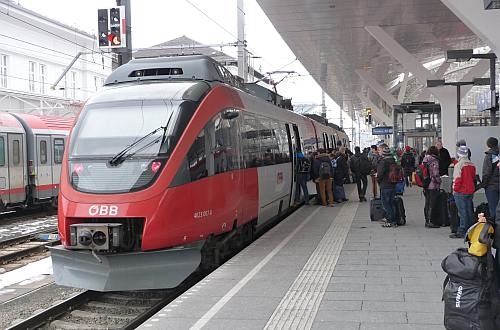Ebit reached €692.9m compared with €593.2m in 2011. Total revenue rose slightly from €6.2bn to €6.27bn while expenditure dropped from €5.61bn to €5.57bn. The final consolidated result reached €64.79m, compared with a deficit of €105m in 2011, and all three subsidiaries contributed to the improved results.
Rail Cargo Austria achieved an Ebit of €56.3m, up from €11.7m in 2011, although revenues fell from €2.6bn to €2.44bn, largely because the company has scaled back its activities in uneconomic market sectors. Freight volume in Austria dropped from 64.7 to 61.7 million tonnes, while Hungarian subsidiary RCH carried 30.3 million tonnes, down slightly from the 30.6 million tonnes carried in 2011. Volumes for other operations outside Austria fell from 5.5 million tonnes to 4.4 million tonnes. Overall Rail Cargo Group carried 85 million tonnes of freight last year, compared with 89.4 million tonnes in 2011.
ÖBB Passenger Transport reported a big increase in rail ridership, which climbed 7% from 209 million passengers to 224 million. This increase is attributed to local and regional train services whilst long- distance passenger figures remained stable despite the market entry of competitor Westbahn on the Vienna – Linz – Salzburg route.
ÖBB admits that competition with Westbahn has led to €15-20m drop in revenues, mostly due to the introduction of cheap Sparschiene tickets. Nevertheless total revenue rose from €1.78bn to €1.87bn while Ebit grew from €60.3m to €74.2m.
Track authority ÖBB Infrastructure reported a slight drop in train kilometres, largely as a result of a decline in freight movements, but Ebit rose from €544m to €590m.
The ÖBB workforce shrank from 40,833 to 39,833, although ÖBB says it expects this figure to remain stable for the foreseeable future.

